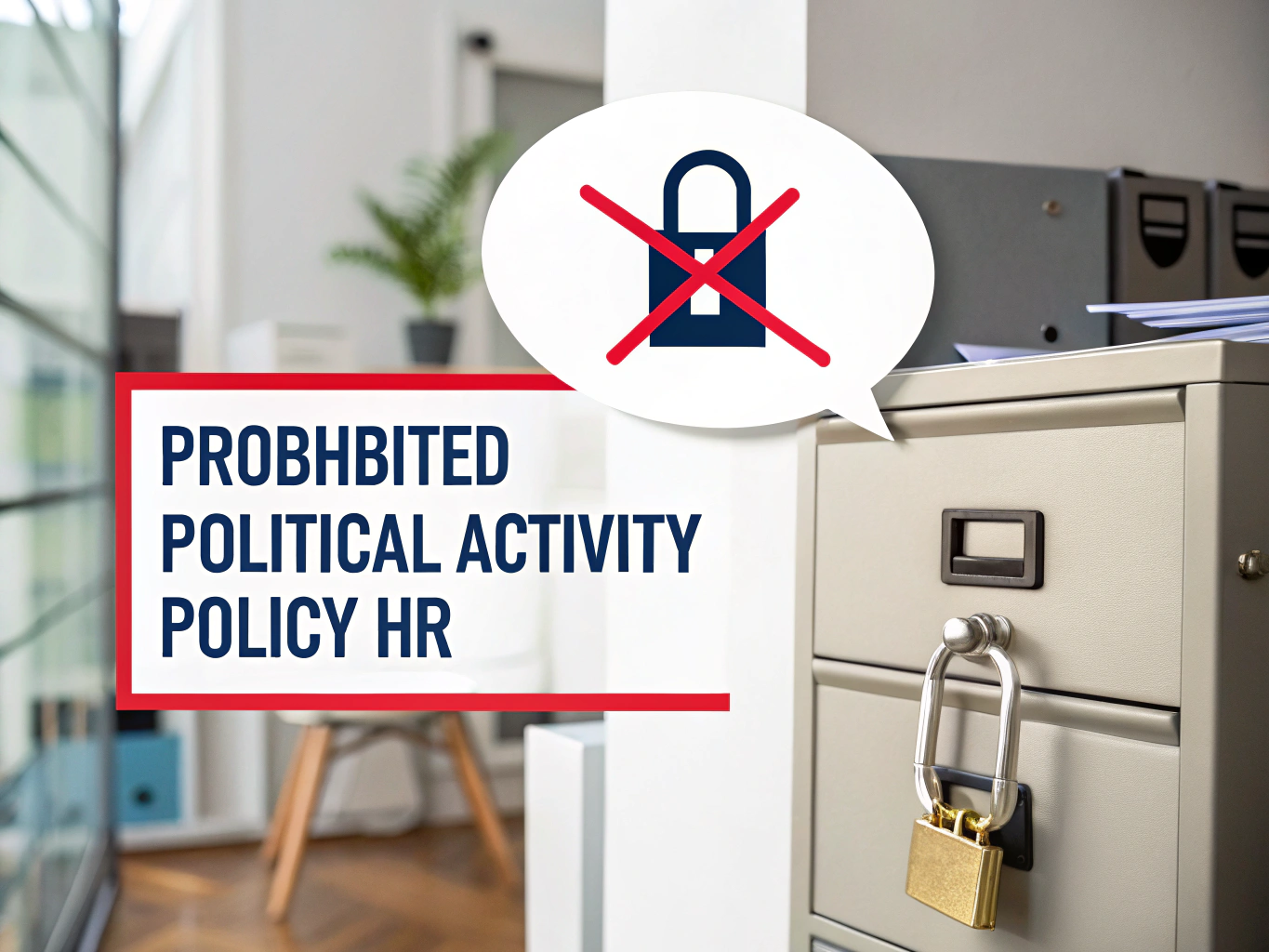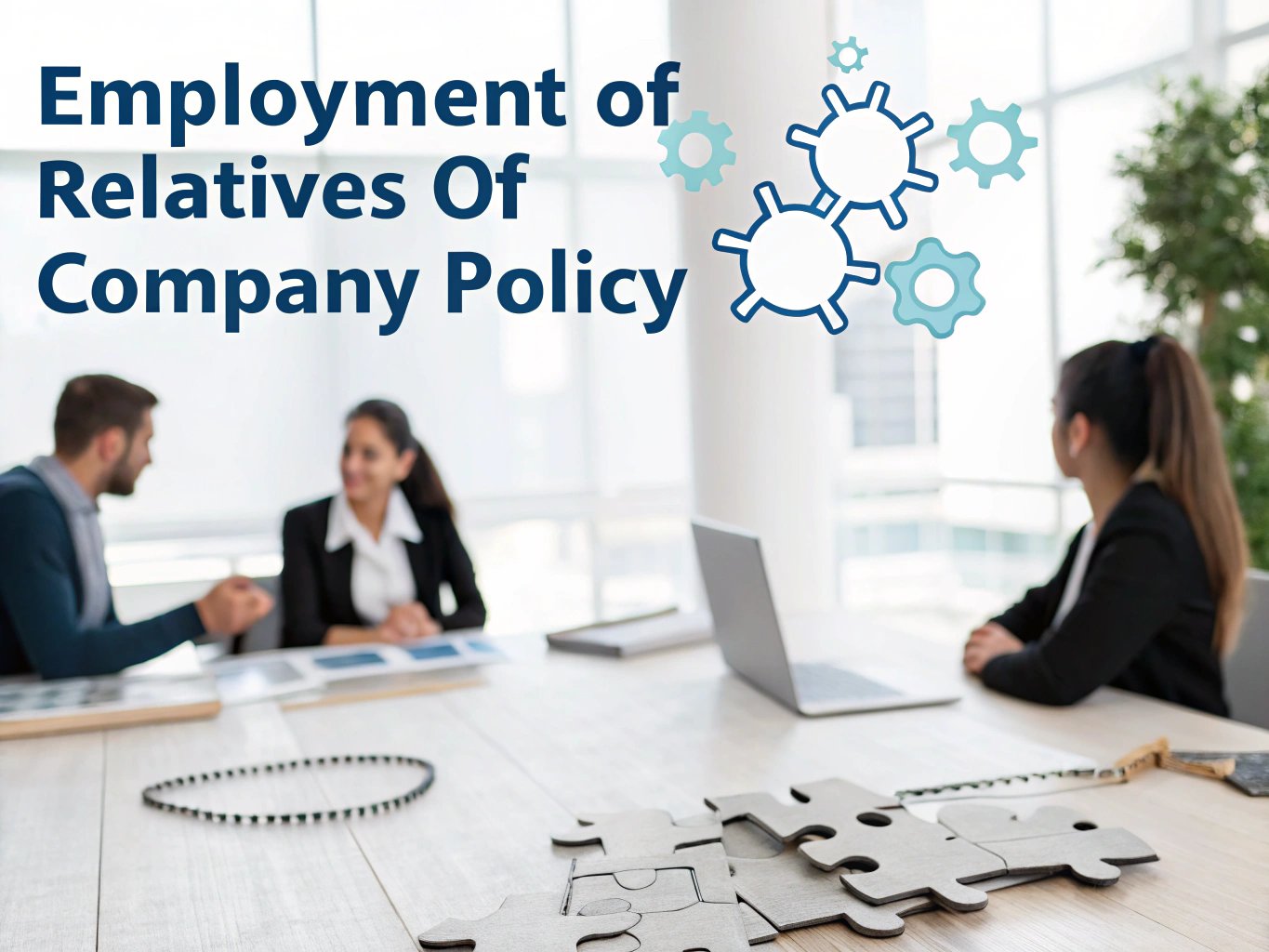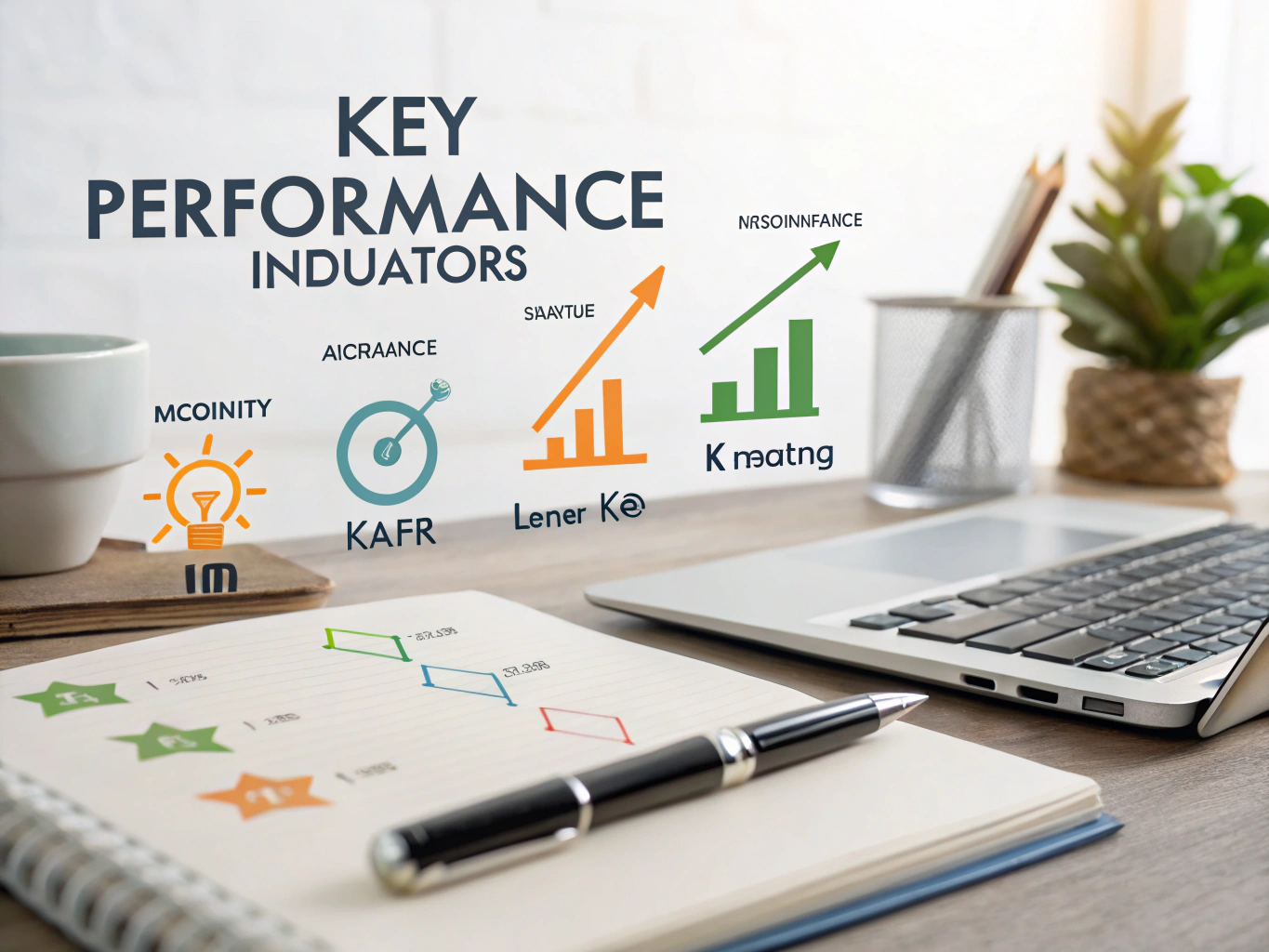Definition
A Prohibited Political Activity Policy is a guideline established by an organization to maintain a neutral and professional work environment by restricting certain political activities among employees. This policy aims to prevent conflicts of interest and ensure that personal political discussions do not disrupt workplace harmony or productivity.
Key Components
This policy comprises several key elements that help create a balanced approach to political expression in the workplace. Here’s what you need to know:
- Nonpartisan Environment: Your workplace should be a space where everyone feels comfortable, regardless of their political beliefs. By fostering a nonpartisan atmosphere, you can help avoid divisive discussions that could negatively impact team dynamics.
- Use of Company Resources: Employees are expected to refrain from using company time, equipment, or facilities for political purposes. For example, sending campaign emails from your work account or using the office printer for flyers can lead to misunderstandings and conflicts.
- Representing the Company: When engaging in political activities, employees must make it clear they are expressing personal views and not those of the company. Imagine an employee posting on social media during a political rally and tagging their workplace; this can blur the lines between personal and professional representation.
- Political Contributions: While employees have the right to support candidates or causes financially, it’s crucial to ensure that these actions do not imply endorsement by the company. A simple reminder that personal contributions are just that—personal—can help maintain this boundary.
- Social Media Guidelines: Encourage your team to think carefully about what they share online. When discussing political views, they should clarify that these opinions are their own, not reflective of the company’s stance, which helps protect your brand’s reputation.
- Compliance with Laws: Employees must adhere to all applicable laws regarding political activities. Any illegal actions, such as using company funds for political contributions, can lead to serious consequences for both the employee and the organization.
Importance in the Workplace
Establishing a Prohibited Political Activity Policy is essential for maintaining a constructive work environment. Imagine a scenario where two employees passionately debate opposing political views during a break. While healthy discussions can be valuable, this can escalate into conflict, affecting team morale and collaboration. By having clear guidelines, you not only protect your workforce from potential discord but also promote a culture of respect and inclusivity, where everyone can focus on common goals rather than personal politics.
Best Practices
Implementing an effective Prohibited Political Activity Policy doesn’t have to be daunting. Here are some practical tips to get you started:
- Communicate Clearly: Ensure that all employees understand the policy by discussing it during onboarding and regular training sessions. Use real-world examples to illustrate what constitutes political activity in the workplace.
- Encourage Open Dialogue: Allow employees to express concerns or seek clarification about the policy. By fostering an open environment, you can mitigate misunderstandings and build trust within the team.
- Regularly Review the Policy: Political climates change, and so should your policies. Regularly review and update the Prohibited Political Activity Policy to ensure it remains relevant and effective.
- Provide Resources: Offer resources for employees to engage in political activities outside of work if they choose to do so. For instance, creating a list of local voting resources or civic engagement opportunities shows that you respect their rights while maintaining workplace boundaries.
- Be Consistent in Enforcement: Apply the policy uniformly to all employees, regardless of their position. Consistency is key to ensuring that everyone understands the importance of the policy and its implications.
Legal Considerations
When crafting a Prohibited Political Activity Policy, it’s vital to stay informed about local, state, and federal laws regarding political activities. For instance, some jurisdictions may have specific regulations regarding political contributions or the use of company resources for political purposes. Consulting with a legal expert can help ensure that your policy complies with all applicable laws, minimizing risk for both the organization and its employees.
Conclusion
Understanding the Prohibited Political Activity Policy is crucial for fostering a positive workplace culture. By clearly outlining expectations and maintaining a balance between personal expression and professional conduct, you can create an environment where everyone feels valued and focused on their work. Remember, the goal is not to stifle personal beliefs but to ensure that the workplace remains a space for collaboration, creativity, and mutual respect.




